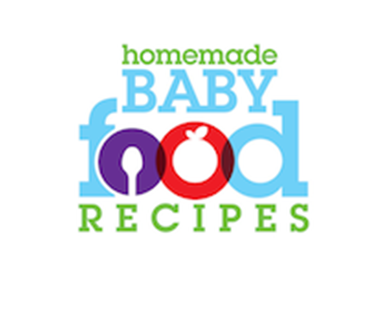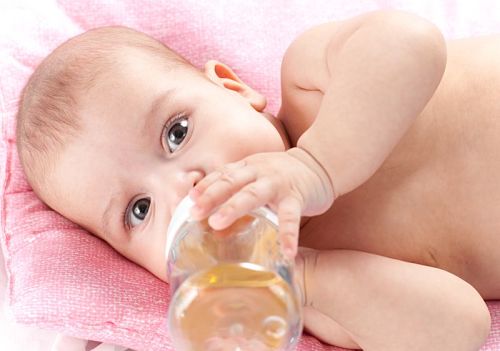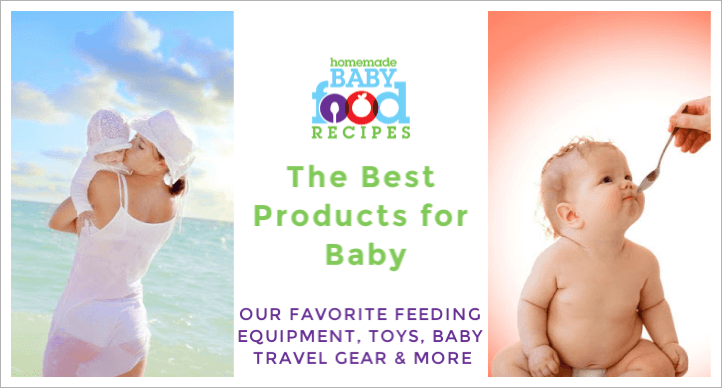Giving Water To Baby – Is It Necessary?
Updated: May 11, 2023
Experts agree that giving water to baby is unnecessary – and may even be harmful – before 6 months of age. But for babies older than 6 months, medical opinion is a little more divided!
IMPORTANT: The information given here is meant as a guide and should not replace professional medical advice. Please consult your child’s doctor before introducing water.
Giving water to baby – official recommendations
The USDA recommends discussing the introduction of water with baby’s pediatrician.
The UK Department of Health recommends that parents give baby nothing but milk for the first 6 months, but advises that water may be given with solids once baby reaches 6 months of age.
Why is giving water to baby harmful before 6 months?
- A baby may “fill up” on water, resulting in him taking less breastmilk or formula. This then deprives him of the nutrients essential for healthy growth and development.
- Too much water can stop your young baby’s body from absorbing the nutrients it needs from milk. It can also lead to an imbalance of electrolytes.
Breastfed babies
If your baby is exclusively breastfed, there is simply no need to give him extra water, even in very hot conditions. It is, of course, important to increase your own water intake and to nurse your baby frequently.
Visit Exclusive Breasfeeding – The Only Water Source Young Infants Need for detailed information about breastmilk composition and the risks of giving water to baby if he is exclusively breastfed.
Formula fed babies
Formula milk is over 80% water, so again, additional water is unnecessary for the first 6 months.
Giving water to baby – 6 months+
The general consensus here seems to be that, although it is not essential, introducing a little water after 6 months of age is not harmful to your baby.
Many parents like to give water after solid foods, particularly high protein foods like meat and eggs. If you are considering giving water to baby at this stage, remember to check first with his health care provider.
There are certain circumstances where extra water might be a good idea – if baby is constipated, for example, or has diarrhea. In either case, seek medical advice before offering water to your infant.
Is It possible to give a baby too much water?
Yes – it can lead to a condition called water intoxication. Visit Water Intoxication In Infants for more information.
Giving water to baby – bottled water or tap?
Despite the much advertised health benefits of some bottled waters, they may not necessarily be better for your baby.
Natural mineral water is the purest form of water, but its mineral levels can be dangerously high for babies. In particular, high levels of calcium can be difficult for baby’s kidneys to cope with. Spring water, too, can contain minerals and sodium and should also be avoided.
Other bottled waters (sometimes called table water) may have a more appropriate mineral content and some are marked as being suitable for babies. If you’re in any doubt, check with a medical professional before giving a particular water to your baby.
If you open a bottle of water for your baby, keep the lid on when you’re not using it and store it in a cool place (below 10 deg C). This is to prevent the growth of bacteria. If you do not use all of the water within one day, it’s a good idea to boil the rest before giving it to your little one.
Also, bear in mind that bottled water is not fluoridated – so if you plan to continue giving it to your baby once he’s weaned, you may want to speak to his doctor or dentist about fluoride supplements.
Do I need to boil tap water for my baby?
There are two trains of thought on this one!
Some medical professionals recommend boiling tap water until baby is a year old, whereas others feel that, after 6 months, this kind of “over-sterilization” is contributing to the current rise in eczema and other allergies.
You may wish to seek the advice of your child’s doctor before making the decision whether or not you boil water for your baby.
When should I introduce a cup?
Many parents introduce water to their babies for the express purpose of teaching them to use a cup!
A baby can usually drink from a sippy cup from around 6-7 months and by one year of age he can often manage the cup by himself.
There are various infant cups available and many parents opt for the no-spill varieties, although these can require quite vigorous sucking! For a “novice drinker”, a simple cup with little open holes in the spout can be easier to manage – although you may find that baby showers himself and everyone around him!
Introducing sippy cup – your questions answered
When extra fluids are required, giving water to baby is the healthiest option – and the ONLY option recommended by doctors and dentists. Fruit juices all contain some form of sugar and you should avoid giving them to baby altogether during his first year.
The facts about fruit juice for babies
External links for more information...
Water Supplementation in Exclusively Breastfed Infants
Nitrate In Drinking Water, including information about blue baby syndrome


